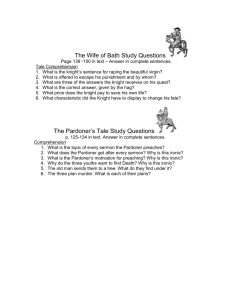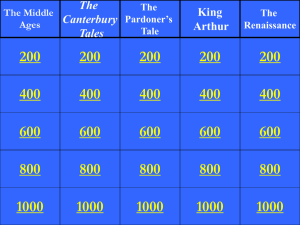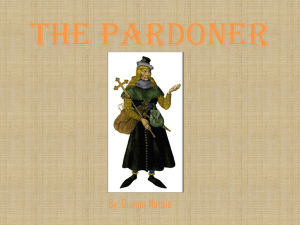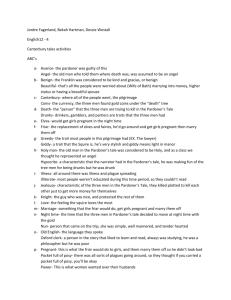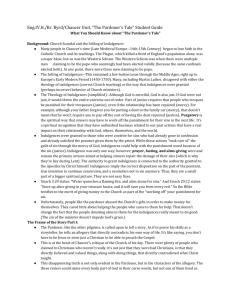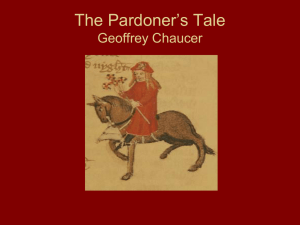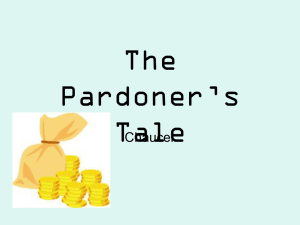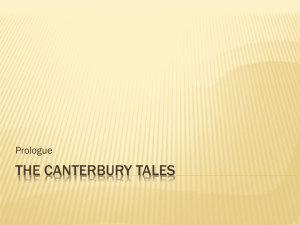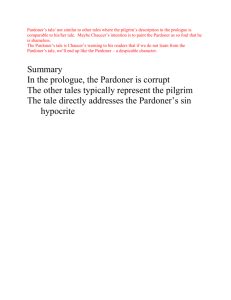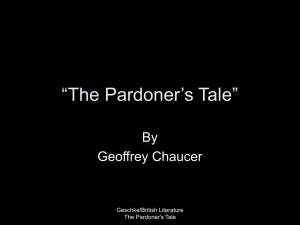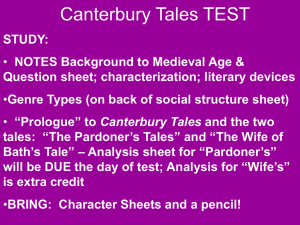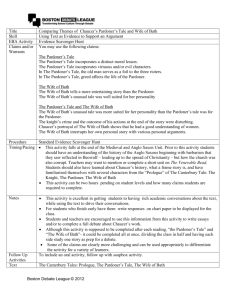The Pardoner The Pardoner rides in the very back of the party in the
advertisement
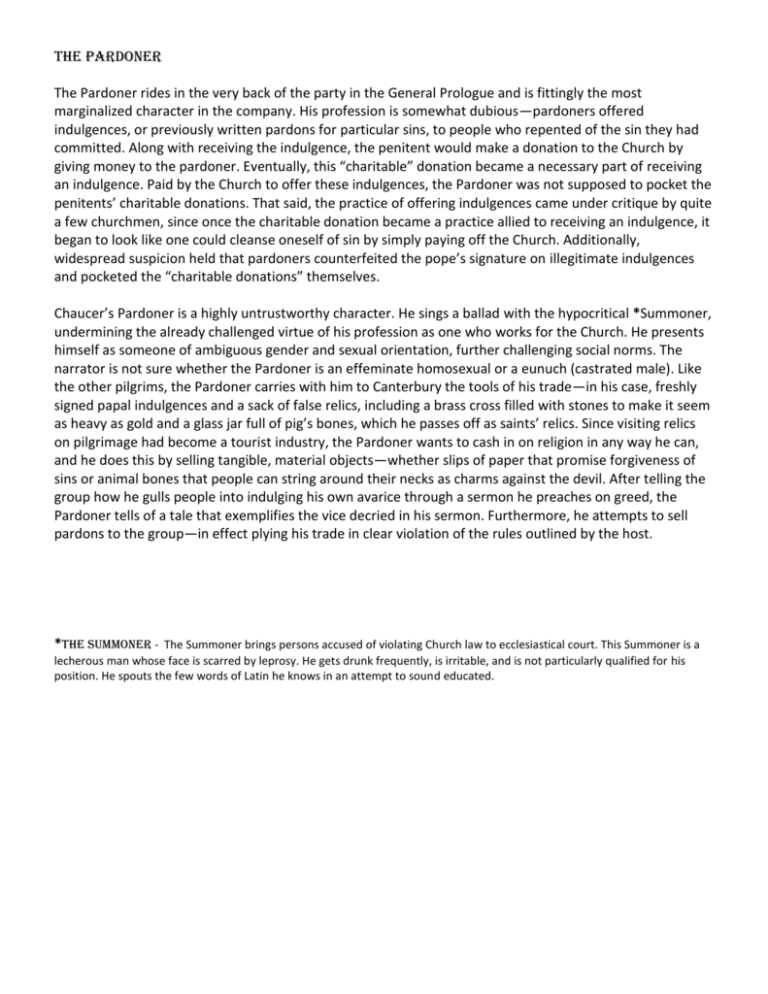
The Pardoner The Pardoner rides in the very back of the party in the General Prologue and is fittingly the most marginalized character in the company. His profession is somewhat dubious—pardoners offered indulgences, or previously written pardons for particular sins, to people who repented of the sin they had committed. Along with receiving the indulgence, the penitent would make a donation to the Church by giving money to the pardoner. Eventually, this “charitable” donation became a necessary part of receiving an indulgence. Paid by the Church to offer these indulgences, the Pardoner was not supposed to pocket the penitents’ charitable donations. That said, the practice of offering indulgences came under critique by quite a few churchmen, since once the charitable donation became a practice allied to receiving an indulgence, it began to look like one could cleanse oneself of sin by simply paying off the Church. Additionally, widespread suspicion held that pardoners counterfeited the pope’s signature on illegitimate indulgences and pocketed the “charitable donations” themselves. Chaucer’s Pardoner is a highly untrustworthy character. He sings a ballad with the hypocritical *Summoner, undermining the already challenged virtue of his profession as one who works for the Church. He presents himself as someone of ambiguous gender and sexual orientation, further challenging social norms. The narrator is not sure whether the Pardoner is an effeminate homosexual or a eunuch (castrated male). Like the other pilgrims, the Pardoner carries with him to Canterbury the tools of his trade—in his case, freshly signed papal indulgences and a sack of false relics, including a brass cross filled with stones to make it seem as heavy as gold and a glass jar full of pig’s bones, which he passes off as saints’ relics. Since visiting relics on pilgrimage had become a tourist industry, the Pardoner wants to cash in on religion in any way he can, and he does this by selling tangible, material objects—whether slips of paper that promise forgiveness of sins or animal bones that people can string around their necks as charms against the devil. After telling the group how he gulls people into indulging his own avarice through a sermon he preaches on greed, the Pardoner tells of a tale that exemplifies the vice decried in his sermon. Furthermore, he attempts to sell pardons to the group—in effect plying his trade in clear violation of the rules outlined by the host. *The Summoner - The Summoner brings persons accused of violating Church law to ecclesiastical court. This Summoner is a lecherous man whose face is scarred by leprosy. He gets drunk frequently, is irritable, and is not particularly qualified for his position. He spouts the few words of Latin he knows in an attempt to sound educated. Student’s Name:_______________________________________________________________ “The Pardoner’s Prologue”/”The Pardoner’s Tale” from Chaucer’s The Canterbury Tales 1. What do you learn about the Pardoner from the man himself, in The Pardoner’s Prologue? _______________________________________________________________________________________ _______________________________________________________________________________________ 2. When considering our modern-day culture, in what ways do we see that people never change, and that there are still “pardoners” in our midst? _______________________________________________________________________________________ _______________________________________________________________________________________ _______________________________________________________________________________________ 3. There are several allusions in this story, as in “The Nun’s Priest’s Tale.” Some of these allusions are listed below. Choose one, “Google” it, read about it, and then briefly describe the analogy that the Pardoner is making or who the person was: Herod and John the Baptist Seneca Adam and “Forbidden Fruit” Ten Commandments Samson Christ and redemption through His blood King Demetrius/King of Parthia/Golden Dice “God’s holy sacrament” The Allusion:______________________________________________________________ The explanation/definition:________________________________________________________________ _______________________________________________________________________________________ _______________________________________________________________________________________ _______________________________________________________________________________________ This is a tale full of irony! Explain what is in this tale: _______________________________________________________________________________________ _______________________________________________________________________________________ _______________________________________________________________________________________

